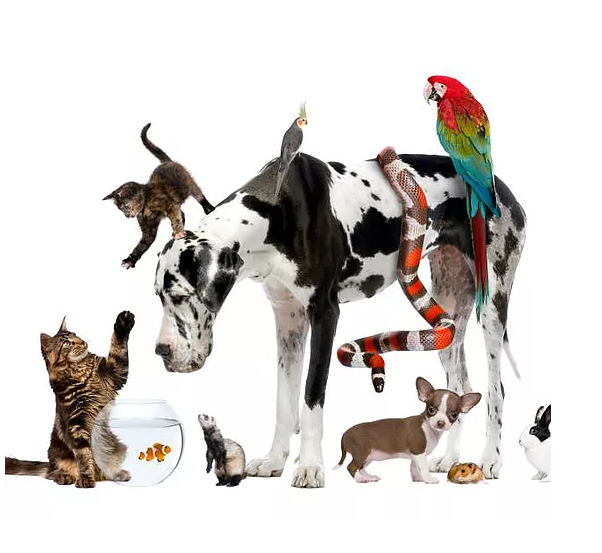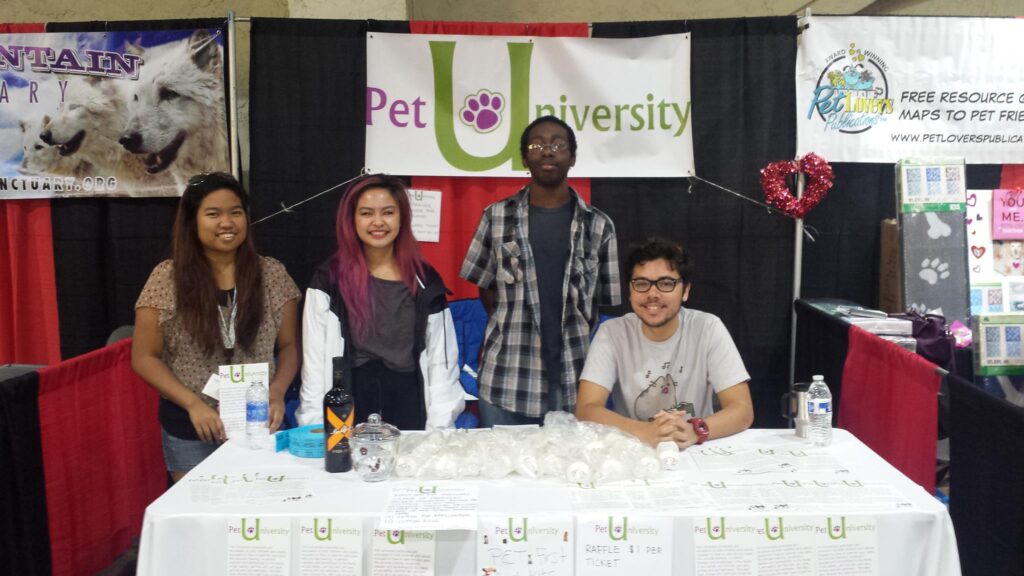Pet University- A Pet Learning Experience (January 2020)
Issue Three- January 2020:
By Mercedes Barreto

Pet University is an organization that promotes pet aid, wellness, and companionship by providing hour-long lessons and training to families and individuals about pets and their care before they make that life-changing purchase, and how to go about their new companion.
What do you believe is the main factor involving families returning their pets?
“I can give you at least ten reasons why families return their pets:
- Lack of training: Shelters are filled with dogs that have potty training, socialization, and obedience issues; all of which could have been prevented through proper training. House soiling (3.37%). These are both preventable. Any dog can be house-trained. Other common behavior problems include excessive barking, tearing up furniture, digging, chewing things like woodwork, digging or tearing up carpet, jumping up on people, and so on. Although frustrating, there are solutions for all of these behavior issues. But they can land a good dog on death row in an animal shelter.
- Lifestyle changes: People losing their job, getting a divorce, having a new baby, or encountering difficulties with their health are also common reasons that dogs end up in shelters. A person may become overwhelmed by a dog when they have a new baby, may be unable to attend to them if they are unhealthy themselves, or find themselves too stressed to pay attention to a dog because of a demanding new job.
- Moving: Sometimes people move and cannot take their dog with them. The home that they relocate to might not allow dogs. They may be moving in with a roommate who is allergic to a dog or simply doesn’t want them in his or her place. There are also cases of people moving into a new house and not wanting to bring their dog along with them to keep it clean. Moving (7.3%) Landlord will not allow pets (5.3%).
- Not enough time for a pet: Our lives are busy, and having a dog requires making time to properly care for it. One of the main reasons that dogs end up in shelters is that their people get busy and start to prioritize other things above the dog, thus neglecting its needs. Often, children who pushed their parents to get them a dog by promising to take care of it become interested in other things, thus leaving the responsibility of the dog to their overwhelmed parents.
- Cost of dog ownership: Between vet bills, boarding, buying food, toys, and grooming, pets can be expensive. Many people underestimate the amount of money that owning a dog will involve, especially if there are special needs or health issues involved. Cost of maintenance of pets (4.1%)

- Health issues: Old dogs and dogs with injuries and other health-related issues require more money, time, patience, and attention than healthy dogs. Some people decide to get rid of the dog versus continue to care for them once an illness or ailment arises. Requests for euthanasia because of illness (7.4%). Euthanasia because of animal’s age (4.6%). The animal is ill (4.1 %).
- Biting: Dogs are often hauled off to shelters because they have bitten a member of the family. If a dog exhibits aggressive behavior, it must be dealt with immediately. Biting can be avoided if a dog is properly trained and socialized and if behavioral issues are addressed before they worsen.
- Too many animals in the home: Pets are cute and can adopt them impulsively. However, when there are too many animals in the home, it can become a problem. People that fail to spay or neuter their pets may end up with a whole litter and find themselves with nowhere to place the puppies. A dog may be fighting with a cat in the house or may not be getting along with the other dogs in the pack, thus resulting in it being sent to a shelter. The owner has too many animals (4.8%)
- Allergies within the family household: If someone in the household develops an allergy to a dog, it may wind up in a shelter. People may have developed an allergy to the dog, might have a significant another move in who is allergic, or may have a child that is born with or develops a dog allergy. Allergies within the family (3.98%)
- Strays and rescues: People who find dogs on the street often take them in temporarily while searching for their family. If the dog’s parents are not found, these dogs are often given to a local shelter in the hopes that they will be placed in a home. Found animal (of unknown origin) (6.6%) Only 10%of the animals received by shelters have been spayed or neutered, while 83% of pet dogs and 91% of pet cats are spayed or neutered.”
Is there really an excuse for this?
“Not one excuse for any of the reasons that I listed above.”

What kinds of emotions come to mind when you see the treatment of animals and pets alike from right before they arrive at the pet store?
“The animal is usually scared and usually exhibits high anxiety.”
How do you feel your organization, in the biggest way, contributes to the end of this maltreatment, simply by educating individuals on what they’re getting into first?
“Yes, by educating families or individuals by promoting pet education; focused on how to care for pets.
Pets are a fun and rewarding experience for both parents and kids, but it is vital to the health of your kids and pets to teach the important pet care habits before purchasing or adopting one.”
What kinds of lessons do you provide to the curious and perceptive individuals who come to learn at your establishment in terms of the specific courses or assignments themselves? How does that work, and how long do these classes take, time-wise, to educate potential pet owners?
“We provide training, in-person classes, workshops in the fields of pet safety, pet first aid, pet care, animal and pet wellness. We also help choose the right type of pet for your home environment.
Some of our classes are just an hour long. We also provide flyers of a specific animal type that lists facts about that animal.”
What would you say to someone dropping off their pet at their local pound, if you could say one thing to change their minds or convince them otherwise?

“I would like to ask you for an opportunity to give your pet one more chance before giving him/her up to the shelter by taking one of my pet educational classes. These classes will benefit both parties and will definitely strengthen your bond with your pet.”
Is there a message to those who are purchasing a pet who could make good use of your organization’s assistance?
“Please sign up for one of my classes and bring your pet along! These classes will enhance knowledge on how to care for a companion or animal.”

ManualMagazines.com
This website uses cookies to provide you with the best browsing experience.
